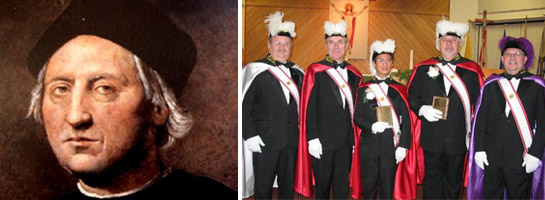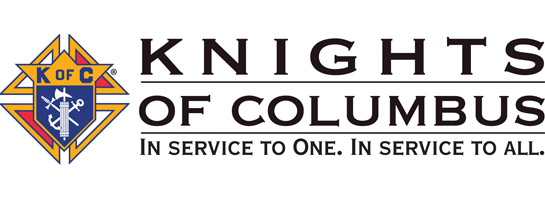History of the Knights of Columbus
History of the Knights of Columbus
The Knights of Columbus were founded on March 29, 1882 by Father Michael J. McGivney in New Haven, Connecticut with the intent of benefitting society. Fr. McGivney presided over a parish that primarily consisted of immigrants, and was quick to recognize the turmoil that could fall upon a family if the breadwinner died. McGivney also recognized that during that time (the 19th century), Catholics were often excluded from labor unions and other organizations that provided social benefits, as well as many fraternal organizations such as the Freemasons.
Fr. McGivney wanted to provide services to his fellow Catholics, such as providing financial aid to the widows and children of deceased members, and encouraging general pride of Catholicism. After traveling to Brooklyn and Boston to examine some other Catholic societies, McGivney formed an original organization called the “Sons of Columbus”. McGivney named the organization after Christopher Columbus because Columbus not only an American hero who happened to be Catholic, but because he would attract immigrants, the membership base that McGivney sought after, and that the organization would symbolize the epitome of American society. James T. Mullen, who would later become the organization’s first Supreme Knight, suggested changing the name to the “Knights of Columbus”, as the word “knight” would better capture the ritualistic nature of the new organization.
After two years of existence, the Knights of Columbus grew to five councils throughout the state of Connecticut with 459 members. After Fr. McGivney passed away from pneumonia in 1890, the organization continued to grow, with their purpose being “[promoting] such social and intellectual intercourse among its members as shall be desirable and proper, and by such lawful means as to them shall seem best.” McGivney’s original insurance system provided a deceased Knight’s widow $1,000 upon their death. They have continued their public services into the 21st century, growing to over 14,000 councils with 1.8 million members.
Click Here to Learn About our Founder, The Venerable Fr. Michael J. McGivney

